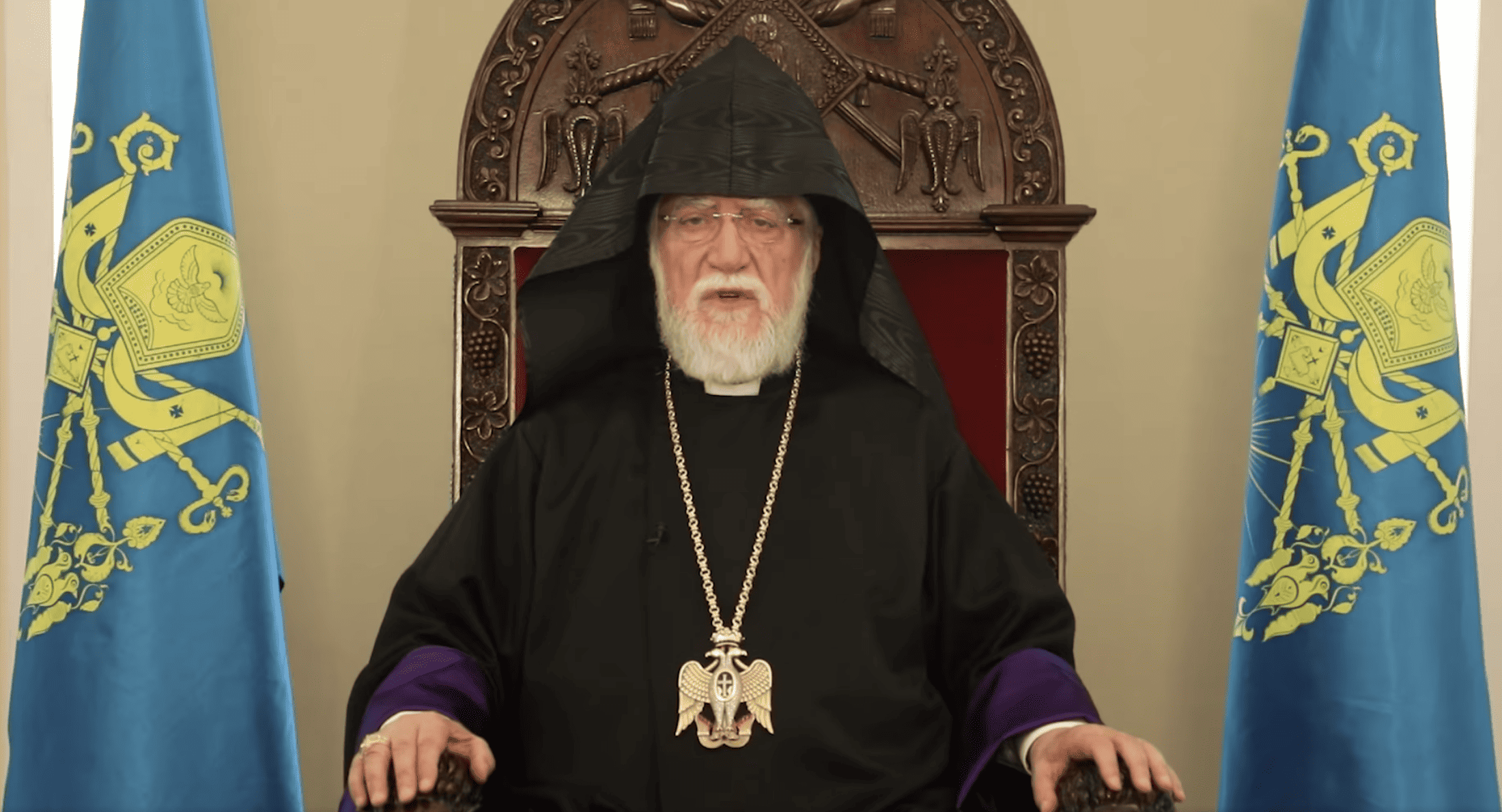Dialogue between monotheistic religions may benefit peace in the Middle East, said His Holiness Catholicos Aram I in his address to the G-20 Interfaith Forum in Bologna, Italy. That was the gist of his message “The role of religious leaders and institutions in responding to the crisis in the Arab region” to the audience, which he addressed remotely as he was unable to attend in person due to the crisis in Lebanon and the work of the Holy See to assist the needy families of the Armenian community in the country.
His Holiness began his speech by saying that, “More than at any other time, the world, which is marked by increasing tensions, polarizations and crises of diverse nature and scope, is in dire need of healing. Healing is achieved through dialogue, mutual understanding and acceptance, and common commitment to ethical values and human rights.” In this sense, underscoring the role of religion, the Catholicos discussed the collective responsibility of the three monotheistic religions in the Arab world. He said that, “In the Arab region, where I come from, the three monotheistic religions, Judaism, Christianity and Islam, with their rich potentials, experiences, and insights, can play a major role for at least three main reasons: first, they share common roots, traditions and values; second, as an integral part of their societies, they embrace in their life and witness all spheres and dimensions of their communities; and third, their long history of co-existence, often marked by tensions and estrangement, calls them to reaffirm their faithfulness to their common values and vocation.” Then he said that “I am aware that such trilateral collaboration and engagement could be perceived as unrealistic in view of the prevailing tension in the region.” However, the Catholicos stressed that he believed that “these religions can act as a platform of creative interaction.”
In this regard, His Holiness said:
“First, the representatives of monotheistic religions often meet and interact in different contexts and occasions on a global level. Why should they not meet in the Middle East around a depoliticized agenda by focusing on their role as justice-promoters and confidence-builders?
“Second, these discussions may help them to deepen their common values and seek how those values are relevant and can be articulated in the context of new realities. Such informal encounters may also support the global efforts of combating violent extremism, intolerance and new expressions of racism.
“Third, regarding crises facing societies, the response of these religions, in my judgment, should be proactive. They must avoid identifying themselves with reactive policies as well as nationalistic ideologies that may jeopardize their specific identity and hamper the efficacy of their prophetic vocation.
“Fourth, the monotheistic religions, while preserving the integrity of their identity and teachings, are called to engage in close partnership with the other institutions of civil society in addressing common issues impacting the life of societies.
“And finally, in respect to policy makers, the role of any religion in any place and under all circumstances should be prophetic, challenging, and critical on the basis of ethical values. It should call for transparency and accountability and for credible and reliable governance.”
In his closing remarks, the Catholicos underlined that the monotheistic religions may greatly contribute to a peace based on justice in the Middle East, as well as to the absolute need for a peaceful and harmonious coexistence of nations, religions and cultures.
A discussion session by a panel of six members followed His Holiness’ address.

